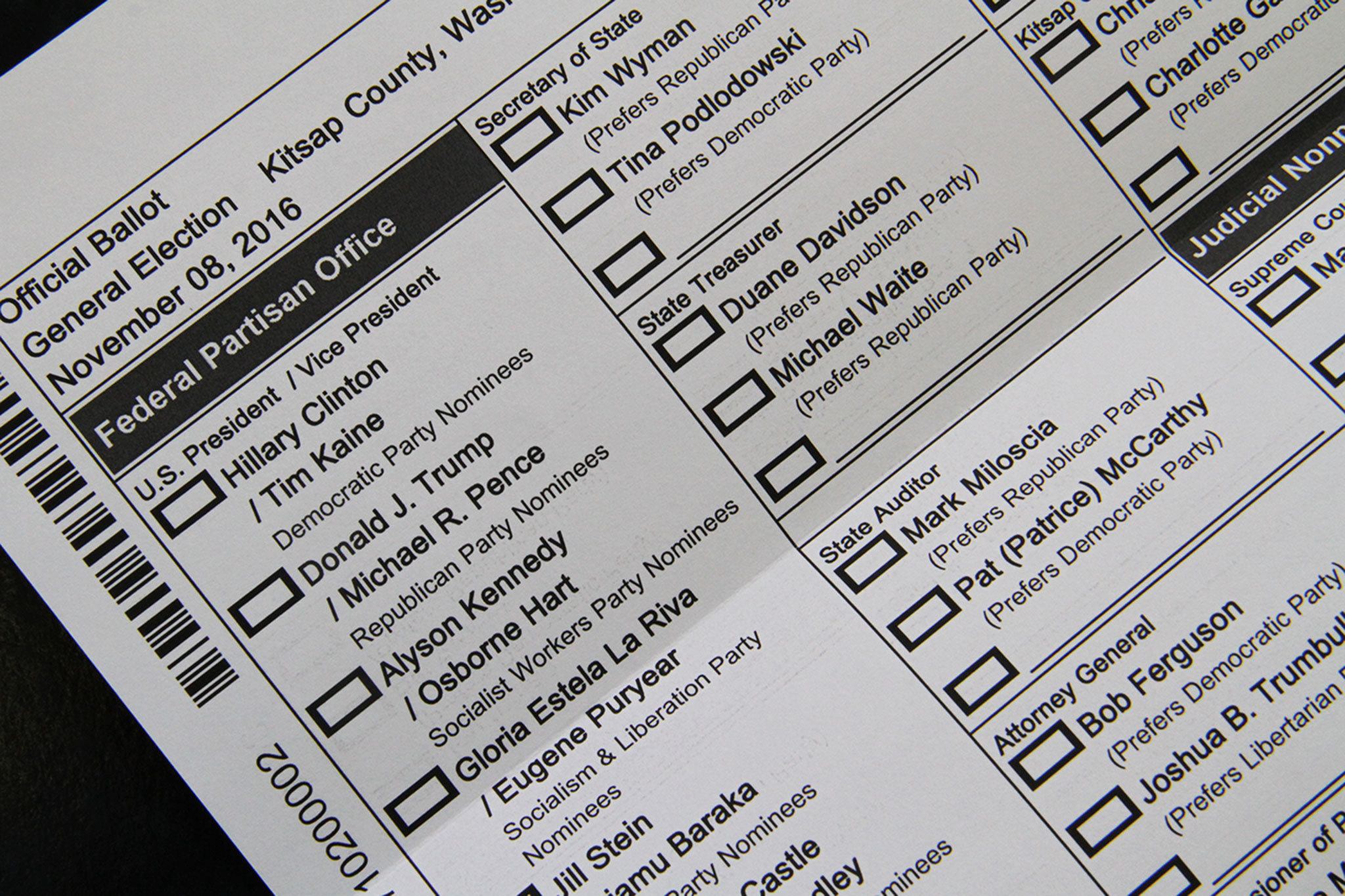Ever hear someone joke they’d rather die than cast a vote for Hillary Clinton, or one for Donald Trump?
Turns out, they can have it both ways and get the last laugh.
With Washington’s mail-in elections system, officials say state law dictates that voters who mail in or cast ballots but pass away before Election Day will still have their votes counted.
In a season marked by late and dire warnings of a “rigged” election by one of the two major party candidates for president, calls for people to volunteer as poll-watchers in other states to guarantee a fair election, and much media handwringing over voter rolls filled with names of the deceased, it’s an interesting footnote that the actual value of a returned ballot doesn’t expire with its voter.
The dead can’t vote, but the soon-to-be-dearly departed can, and do.
“You don’t have to be alive on Election Day; you have to be alive when you voted,” said Kitsap County Elections Manager Kyle Joyce.
And that’s where the declaration that arrives with each ballot comes in.
“Getting a ballot isn’t what casts a vote,” Joyce said.
David Ammons, spokesman for the Washington State Secretary of State, agreed.
“A properly voted ballot the person returned before passing away will be counted,” Ammons said.
“The widow/widower cannot cast a ballot on their behalf, even if they are aware of how the person wanted to vote,” he added.
Ballots are only counted after the signature on the declaration matches the one on file; the one used during voter registration, noted Joyce.
“A human actually looks at every single signature and verifies it,” Joyce said.
Cases of deception are almost unheard of, he added.
“It’s very, very rare that someone tries to sign someone else’s ballot.”
The department has gotten plenty of calls from voters concerned about the integrity of the election, he said, and added that a lot of misinformation is being spread on the internet.
“I’m laser-focused on Kitsap County. Here I feel very comfortable with what we do.”
The voter roll itself is routinely updated to remove anyone who is deceased.
The county elections division uses multiple methods to keep its roll accurate. A relative of someone who has passed, he noted, can fill out a form to have the name removed. Official death notices are retrieved, as well, from the health district’s department of vital statistics.
There’s also the local newspapers.
“We actually read the obituaries over here. Which is sad,” he added.
In 2016, workers in the county elections division have already removed 643 registered voters who have passed away.
Ammons said the Office of the Secretary of State also conducts reviews of voter rolls.
“We do regular roll reviews with the Social Security death index, which tracks [Washington] deaths, both in state and out of state,” he said.
In terms of this year’s General Election, turnout here isn’t looking to be as healthy as earlier years.
Turnout in Kitsap County is expected to be around 80 percent, Joyce said, which is lower than the mark set during the presidential year elections of 2012 (82 percent) and 2008 (87 percent).
“Seventy five percent couldn’t shock me; 85 wouldn’t shock me,” he said.
By Wednesday night, a third of all voters across Washington state had already voted.
State officials said Washington counties have reported receiving more than 1.4 million ballots — roughly 33 percent of registered voters.
The percentage of returned ballots in Kitsap County so far is surpassing the state average.
Through Wednesday, approximately 37 percent of registered voters in Kitsap had sent their ballots back in. That’s 61,054 ballots from 164,925 voters.



